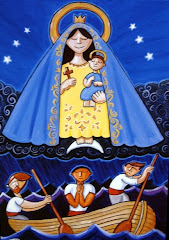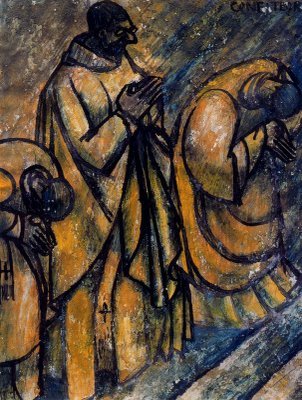
The Third Day He Rose Again from the Dead.
The glory of Christ's resurrection threw a luster upon everything which before had the appearance of weakness and frailty. If a while since it seemed to you impossible that an immortal Being could die, you see now that He who has overcome death and is risen again cannot be mortal. But understand herein the goodness of the Creator, that so far as you by sinning have cast yourself down, so far has He descended in following you. And do not impute lack of power to God, the Creator of all things, by imagining his work to have ended in the fall into an abyss which He in His redemptive purpose was unable to reach. We speak of infernal and supernal, because we are bounded by the definite circumference of the body, and are confined within the limits of the region prescribed to us. But to God, Who is present everywhere and absent nowhere, what is infernal and what supernal? Notwithstanding, through the assumption of a body there is room for these also. The flesh which had been deposited in the sepulcher, is raised, that that might be fulfilled which was spoken by the Prophet," You will not suffer Your Holy One to see corruption." He returned, therefore, a victor from the dead, leading with Him the spoils of hell. For He led forth those who were held in captivity by death, as He Himself had foretold, when He said, "When I shall be lifted up from the earth I shall draw all unto Me." To this the Gospel bears witness, when it says, "The graves were opened, and many bodies of saints which slept arose, and appeared unto many, and entered into the holy City," that city, doubtless, of which the Apostle says, "Jerusalem which is above is free, which is the Mother of us all." As also he says again to the Hebrews, "It became Him, for Whom are all things, and by Whom are all things, Who had brought many sons into glory, to make the Author of their salvation perfect through suffering." Sitting, therefore, on the right hand of God in the highest heavens, He placed there that human flesh, made perfect through sufferings, which had fallen to death by the lapse of the first man, but was now restored by the virtue of the resurrection. Whence also the Apostle says, "Who has raised us up together and made us sit together in the heavenly places." For He was the potter, Who, as the Prophet Jeremiah teaches, "took up again with His hands, and formed anew, as it seemed good to Him, the vessel which had fallen from His hands and was broken in pieces." And it seemed good to Him that the mortal and corruptible body which He had assumed, this body raised from the rocky sepulcher and rendered immortal and incorruptible, He should now place not on the earth but in heaven, and at His Father's right hand. The Scriptures of the Old Testament are full of these mysteries. No Prophet, no Lawgiver, no Psalmist is silent, but almost every one of the sacred pages speaks of them. It seems superfluous, therefore, to linger in collecting testimonies; yet we will cite some few, remitting those who desire to drink more largely to the well-springs of the divine volumes themselves.

